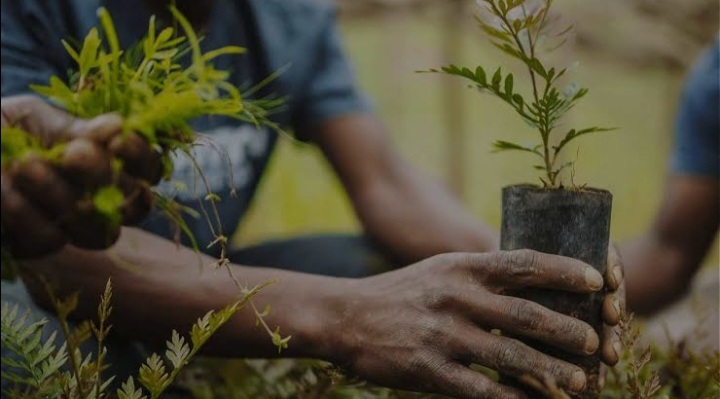World Environment Day: CAMIC, Others Advocate Tree Planting To Promote Biodiversity, Ecosystem
*NatureNews holds webinar on X Space

By Obiabin Onukwugha
As the United Nations marks the World Environment Day, today, a non-governmental organisation, Climate Africa Media Initiative Centre (CAMIC), has charged stakeholders across the world to appreciate the importance of trees and take immediate actions to restore and protect the forests.
The theme of this year’s World Environment Day is “land restoration, desertification, and drought resilience.”
The think-tank said: “By implementing and enforcing strong deforestation laws, promoting sustainable land use practices, supporting reforestation and afforestation projects and raising awareness about the importance of trees and encouraging community involvement in tree planting initiatives, climate change impacts could be ameliorated.”
Noting that trees are the foundation of life on Earth, CAMIC said their preservation is not a choice but a necessity for our continued existence, adding that it remains committed to advocating for policies and practices that protect our environment and ensure a sustainable future for all.”
The Centre informed that it would be hosting a webinar to commemorate the day as it contribution to global afforestation efforts.
In a statement issued Tuesday in Abuja and signed by the Executive Director, Aliu Akoshile, CAMIC underscored the critical importance of trees in maintaining a balanced and sustainable environment.
The Centre described trees as the silent sentinels of our planet that provide a myriad of ecological, economic, and social benefits that are indispensable to human survival, adding that without them, humanity faces the grim prospect of extinction.
“Trees are often referred to as the lungs of the Earth. Through the process of photosynthesis, they absorb carbon dioxide and release oxygen, which is essential for the survival of most living organisms. One mature tree can produce enough oxygen annually to support two human beings.
“Trees play a crucial role in mitigating climate change by absorbing carbon dioxide, a major greenhouse gas. Forests act as carbon sinks, reducing the amount of CO2 in the atmosphere and thus helping to stabilize global temperatures.
“Trees provide habitat and food for a vast array of species. Forests are home to over 80% of terrestrial biodiversity. The loss of trees would lead to the extinction of numerous species, disrupting ecosystems and the services they provide
“Trees are integral to the water cycle. They absorb and store rainwater, which helps prevent floods and droughts. Their root systems also improve soil stability and reduce erosion.
“Trees provide resources such as fruits, nuts, timber, and medicine, which are vital for many communities’ livelihoods. Agroforestry, which integrates trees and agriculture, can enhance food security and economic resilience.
“If all trees were to die, the consequences would be catastrophic. The immediate loss of oxygen production would make it difficult for humans and animals to breathe. Rising levels of carbon dioxide would accelerate global warming, leading to extreme weather events, sea level rise, and loss of arable land. The extinction of numerous species would disrupt ecosystems, leading to a collapse of the natural services we rely on, such as pollination and nutrient cycling.
“The loss of trees would also mean the disappearance of vital resources, pushing many communities into poverty and food insecurity. Urban areas would become uninhabitable due to poor air quality and extreme heat, exacerbating health crises, and reducing life expectancy,” CAMIC noted.
In a statement to mark the day, UN Secretary General, António Guterres, said humanity depends on land and as such countries must deliver on all their commitments to restore degraded ecosystems and land, and on the entire Kunming-Montreal Global Biodiversity Framework.
“Yet, all over the world, a toxic cocktail of pollution, climate chaos, and biodiversity decimation are turning healthy lands into deserts, and thriving ecosystems into dead zones. They are annihilating forests and grasslands, and sapping the strength of land to support ecosystems, agriculture, and communities.
“That means crops failing, water sources vanishing, economies weakened, and communities endangered – with the poorest hit hardest. Sustainable development is suffering. And we are trapped in a deadly cycle – land use is responsible for eleven percent of the carbon dioxide emissions heating our planet. It’s time to break free.
“Countries must deliver on all their commitments to restore degraded ecosystems and land, and on the entire Kunming-Montreal Global Biodiversity Framework. They must use their new national climate action plans to set out how they will halt and reverse deforestation by 2030,” he stated.
